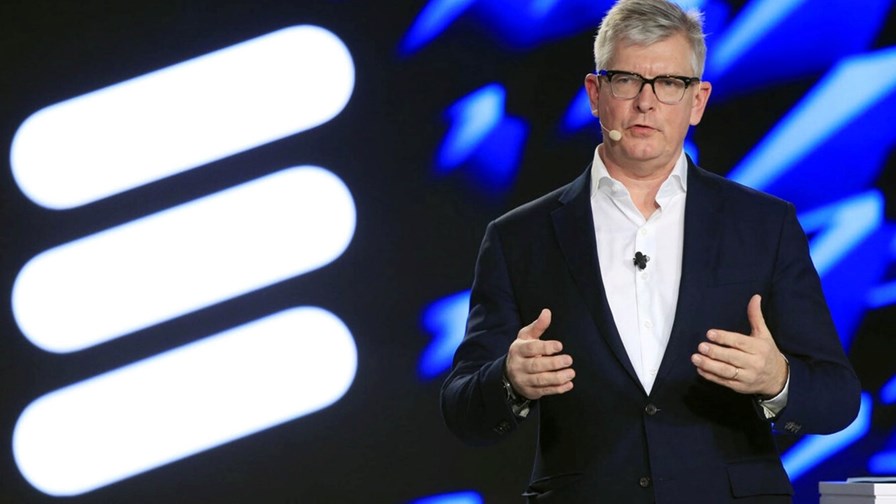
Picture courtesy of Ericsson
- Börje Ekholm says Europe is years behind in its digital capabilities
- Urges Europe to accelerate its adoption of 5G
- Signals more R&D investments in 5G core
- Swedish vendor holds up well in Q2
Ericsson CEO Börje Ekholm is worried about Europe.
“The problem we have is that Europe is rapidly falling behind in digital infrastructure,” he stated during the vendor’s second quarter earnings presentation. “It's behind in 4G penetration, probably by… an average two to three years – that has led to a lot of loss of economic value in Europe as a continent.
“So if you look at tech unicorns, tech disruptors that actually leverage the mobile infrastructure, with the notable exception of Spotify, they come out of the US, or they come out of China. If we are going to repeat that mistake, I think the European economy has a problem,” stated the Swede (pictured above).
As you might expect, Ekholm would like to see Europe advancing its digital infrastructure by accelerating investments in 5G, which of course would be good for Ericsson.
“Europe as a continent needs to not be behind on 5G. And why is that so important? 5G is going to drive a lot of enterprise applications, in healthcare, in logistics, in smart city planning etc. So when you start to look at that, the big value of 5G is not the network infrastructure, it's not the operators, it's actually the applications that run on top of the network. So if we are delaying 5G in Europe, then we are also hurting our economic future. And I think that's the realisation that has to start to come to the surface in Europe,” said the CEO, who also noted that 5G spectrum pricing in Europe (which is high in many markets) isn’t helping to spur 5G investments.
Now, he clearly has skin in this game, because he’d love to see increased investments in 5G in Europe as soon as possible, while Huawei’s pariah status grows by the week and while Nokia is still playing catchup: But, leaving that vested interest aside, does Ekholm have a point?
Matthew Howett, Principal Analyst & Founder at Assembly Research, doesn’t feel Europe is lagging as much as Ekholm suggests and notes that market conditions are somewhat different.
“Ultimately the level of competition is very different in Europe compared to the US and China -- less competition there means higher prices, which in turn means more money for investment,” he notes. “Given the healthy amount of competition we have in Europe, I think we aren't faring too badly – a good number of countries have already launched 5G and penetration of full fibre is high in places such as Spain and Portugal… I'd say there are certainly things that Europe needs to do more to attract and foster startups that make use of the infrastructure, but if the question is why doesn't Europe have a Facebook or a TikTok, then I'm not sure you can put it down solely to the network infrastructure.”
Ekholm’s delivered his assessment of Europe’s woes as he reported better than anticipated second quarter financials for Ericsson. It generated revenues of SEK 55.6 billion ($6.14 billion), roughly the same as a year ago when adjusted for comparable units and currency fluctuations. And despite a SEK 900 million ($99.4 million) inventory writedown related to business in China, the vendor’s gross and operating margins improved: Investors liked the numbers, as Ericsson’s share price leaped by more than 10% to SEK 96.52.
Other key takeaways from Ericsson’s Q2 results, which can be read in more detail in the company’s press release:
- The vendor is to invest more R&D funds into its Digital Services division, mainly into its 5G core platform but also into next-gen billing systems. Ericsson notes “strong demand for our cloud-native and 5G portfolio, and we have recorded several important tier 1 customer wins in 5G Core that will generate revenues in 2021 and beyond.”
- It has won a lot of 5G business in China, though the company noted that while “the Chinese 5G contracts are expected to be profitable over the life cycle, [they] had a negative contribution to gross margin in Q2.”
- Sales in North East Asia were up significantly (19%) compared with a year ago but sales were down in most other regions except for North America, where revenues edged up by 1%.
- Ekholm says Ericsson has been increasing its market share in the past couple of years, citing stats from research house Dell’Oro. Raymond James analyst Simon Leopold believes Ericsson has been gaining market share from Nokia in China and the US and states in an analyst note issued today that “In Europe, management implied it has taken from Nokia but we believe it will also take from Huawei.” Ekholm shied away from questions about rivals, including analyst questions about whether Samsung posed a growing competitive threat in Europe.
- Its patent portfolio will include 5G starting with new and renegotiated contracts in the coming quarters, but there might be a blip in IPR revenues while those new deals are struck, as Ericsson wants to ensure it gets “good value” for its 5G patents.
- Ericsson has 99 commercial 5G deals and has its tech in 54 live 5G networks.
- The vendor is keeping a watching brief on Open RAN: “We are going to be a participant,” noted the CEO. “For high performance applications today, ORAN is not a way to speed up rollout.”
- Ray Le Maistre, Editorial Director, TelecomTV
Email Newsletters
Sign up to receive TelecomTV's top news and videos, plus exclusive subscriber-only content direct to your inbox.




